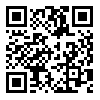
 , Hamid Javdani2
, Hamid Javdani2 
 , Behnaz Mohajeran
, Behnaz Mohajeran 
 3, Mir Mohammad Seyed Abbaszadeh4
3, Mir Mohammad Seyed Abbaszadeh4 
 , Mojtaba Bazrafshan Moghadam5
, Mojtaba Bazrafshan Moghadam5 

2- Department of Higher Education Management Studies, Institute for Research and Planning in Higher Education, Tehran, Iran.
3- Department of Educational Psychology, University of Urmia , behi217@yahoo.com
4- Department of Educational Psychology, University of Urmia
5- Department of Educational Psychology, Ferdowsi University of Mashhad
The emergence of the concepts of sustainable development, then the “sustainability” and scope of academic literature and national and international documents in their conceptualization, and also in criticizing the growth-oriented (economic) development process that has dominated human societies for decades in the national and international realms, all show that the current retrogressive paradigm has created many unfortunate social and environmental consequences for human communities. It appears that a widespread part of the current problems that man and his ecosystem are facing arises from disciplinary and incoherent knowledge that has emerged partly due to the dominance of “economic-utilitarian discourse” and its instrumentalist nature. Hence, the concept of sustainable development is examined with a critical approach. Then, relying on the sustainability paradigm, the concept of sustainable education, as an evolving concept, is re-examined and redefined using qualitative content analysis and semi-structured interviews with scholars. Based on the theoretical and experimental findings of this research, to get over this crisis and the current unsustainability and to achieve balance and sustainability, we first need to criticize the current knowledge and the unfortunate consequences of its functioning, which at the same time, requires new knowledge creation based on social interaction and international interdiscplinarity approaches and efforts.
Received: Jun 25 2017 | ePublished: Nov 15 2017
| Rights and permissions | |
 |
This work is licensed under a Creative Commons Attribution 4.0 International License. |

